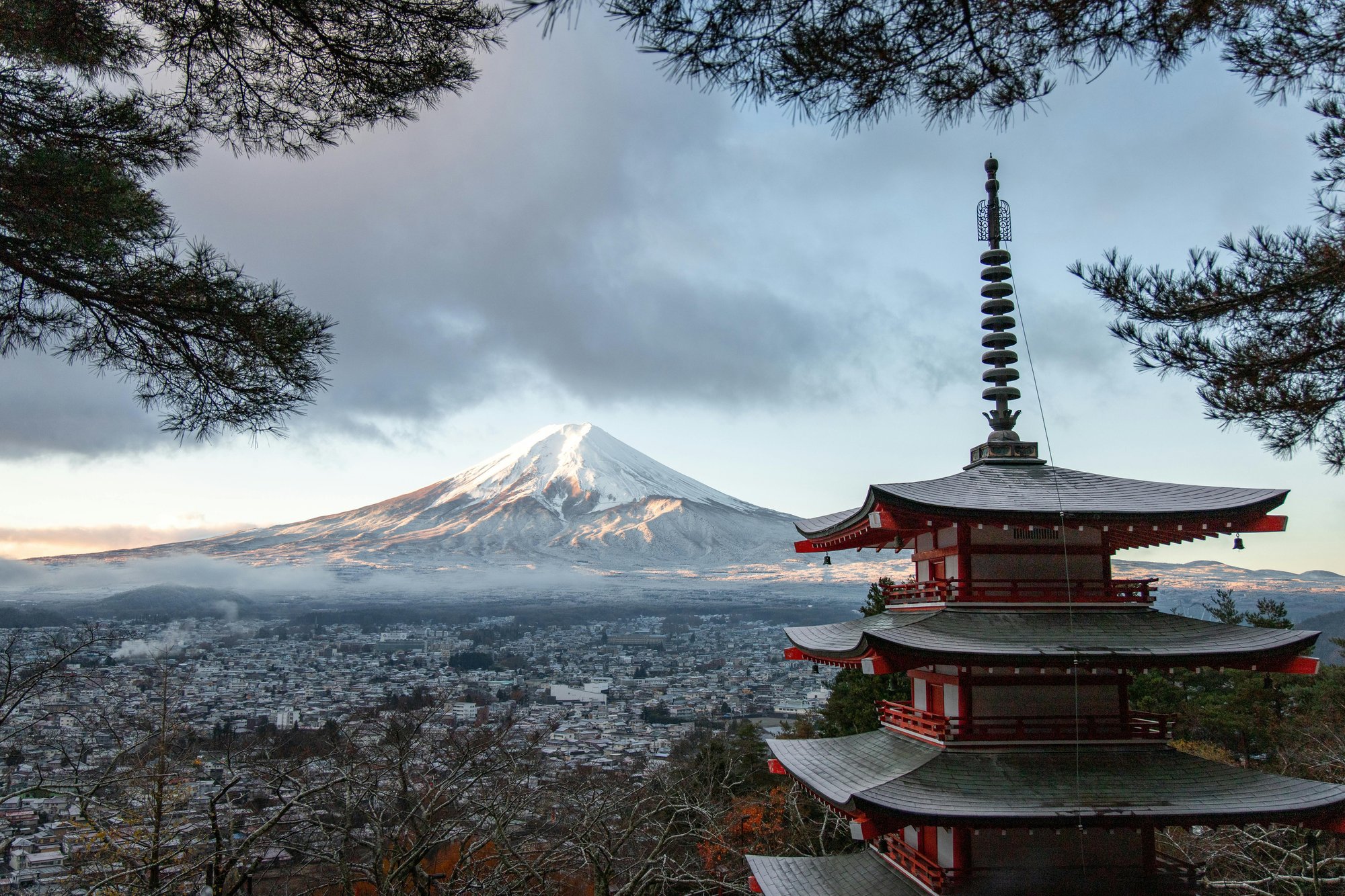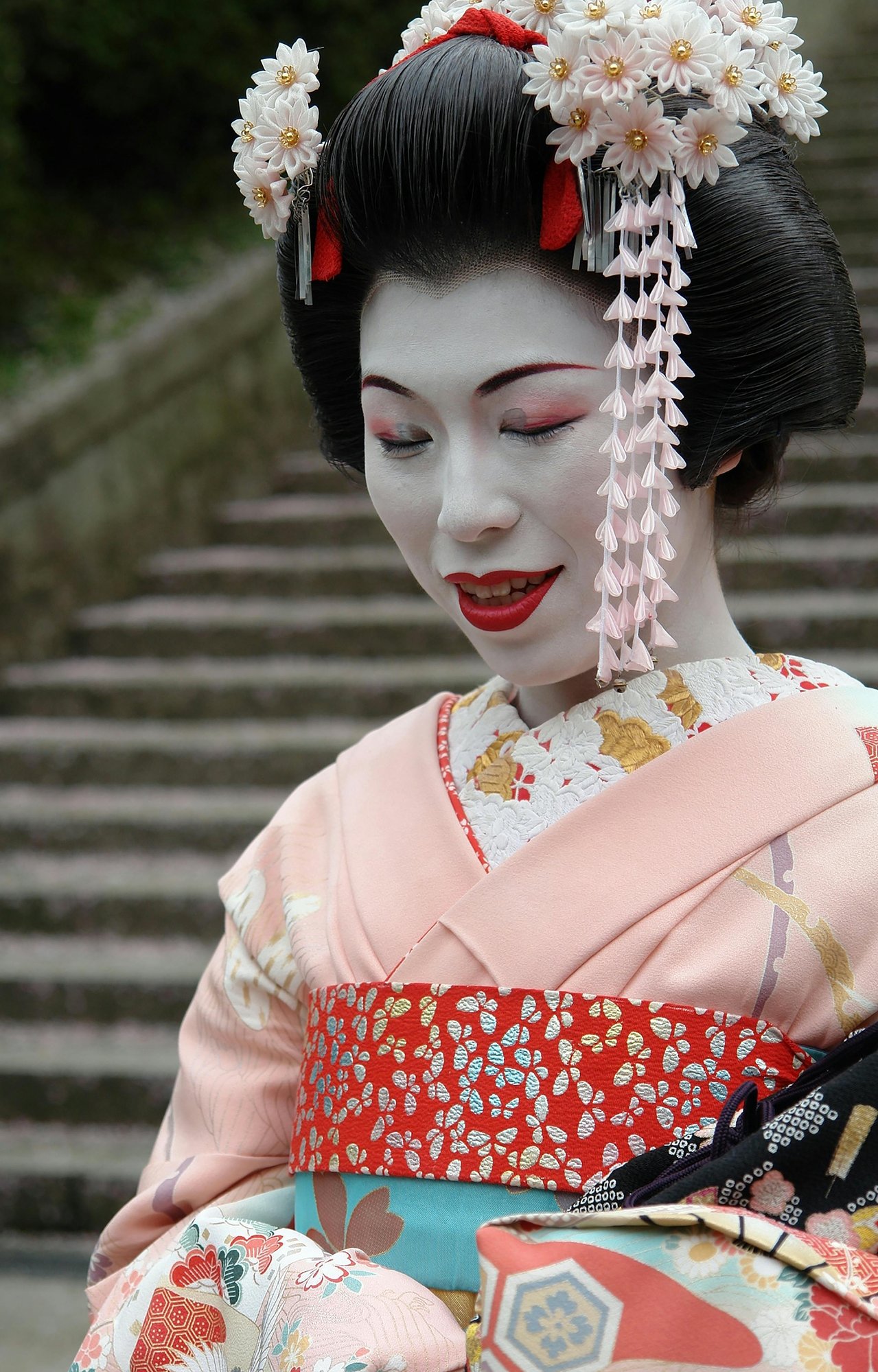- Favorite Destinations
- Japan Travel Insurance
Japan Travel Insurance

Why take out travel insurance to Japan?
Traveling to Japan is a fascinating experience, full of discoveries and unforgettable moments. To enjoy it to the fullest, it is essential to have travel insurance, here's why!
First, medical care in Japan can be quite expensive, and insurance protects you from having to pay large sums in case of illness or accident. In addition, travel insurance provides you with medical assistance, which gives you peace of mind during your stay.
If you have to interrupt your trip because of any unforeseen event, an insurance can cover a very important part of your trip. And if you have any kind of incident during the trip or flight, we can also give you the assistance you need. The loss, theft or damage of your luggage can ruin any trip. You will receive assistance to recover your belongings or compensation for the loss, allowing you to continue enjoying your trip.
So yes, travel insurance offers you financial protection, emergency assistance and peace of mind, ensuring that you can make the most of your experience in Japan.
Is it mandatory to have travel insurance to Japan?
Currently, it is not mandatory to have travel insurance to enter Japan as a tourist; Japanese authorities do not require this requirement at customs or as part of the entry process. However, it is highly recommended to have one.
Japan is known for having an excellent health care system, but also for being one of the most expensive countries in the world in terms of medical care. A simple medical consultation or a visit to the emergency room can be a considerable expense if you do not have health coverage.
In addition, a good travel insurance not only covers medical expenses, but also other unforeseen events such as flight cancellations or delays, lost or stolen luggage, legal assistance, repatriation in case of emergency, etc... etc. Therefore, even if it is not mandatory, traveling without insurance can be an unnecessary risk that could ruin your experience in the country.

What is the best travel insurance to go to Japan?
With our insurance PREMIUM TRAVELER you will be protected at all times. We offer you complete coverage that includes medical assistance, protection against unforeseen events such as lost luggage or cancellations, and a personalized attention service so that you can enjoy your trip without stress.
Imagine touring Japan with the security of knowing that, in case of any eventuality, you have the backing of an insurance that will protect you at all times.
protected at all times.
What are our coverages?
- Medical expenses up to 1.500.000€ in .
- Repatriation and medical transfers included.
- Luggage protection (theft, loss or damage) up to 1.500€.
- Civil liability abroad, up to 60.000€.
- Accident insurance 24 hours, up to 30.000€.
In addition, the PREMIUM TRAVELER Insurance includes a cancellation module that covers more than 40 different causes, such as health problems, dismissal or damage to your home. Complete your insurance with our additional modules:
Sports module: If you are going to practice any sports activity, you will be protected against incidents, loss of equipment or rescue expenses, covering from water sports to aerial activities, always in amateur mode.
Pre-existing conditions module: And if you have a pre-existing medical condition, this module guarantees you assistance in case of unexpected complications during the trip, and even the possibility of cancellation if necessary.

How much does travel insurance to Japan cost?
When you organize a trip, choosing the right insurance is a key decision to travel with total peace of mind. More than just fulfilling a requirement, it is about protecting you against any unforeseen event that may arise during your adventure.
Factors such as the number of people insured, the coverage included, the duration of the trip or the destination are essential when taking out your insurance. That is why at Europ Assistance we offer you a complete and accessible solution. With our PREMIUM TRAVELER insurance, you can be covered from only 56,81 € for one week of travel. A minimal investment when compared to the total cost of a trip to a destination like Japan, where any unforeseen medical event can be a very high expense. Therefore, there is nothing like traveling knowing that you are covered from the very first moment.
What is the risk of not taking out travel insurance to Japan?
To do without travel insurance in Japan is to take unnecessary risks that can affect your well-being and your pocket. Medical care in this country is of very good quality, but it is also very expensive for foreign tourists. In addition, Japan is a country with high seismic activity, which can lead to unforeseen cancellations or interruptions in your trip.
And don't forget how common it is to miss connections or lose luggage on long flights with stopovers: if your suitcase is lost or damaged, it is very likely to cost you a lot of money.
Not having insurance in Japan means exposing yourself to unforeseen events in a distant country, with a different language and culture, without a support network. Is it really worth risking everything by not carrying full protection?
What should you know before traveling to Japan?
Documentation
Before starting your adventure in Japan, make sure you have everything you need to enjoy your trip. Check that your passport is valid, find out if you need a visa according to your nationality, and don't forget to take out travel insurance to protect you against any unforeseen eventuality. In addition, an eSIM card is an excellent option to stay connected from the first moment, without complications or additional costs.

Cards
Although Japan is a very technologically advanced country, the use of cash is still very common, especially in rural areas, small stores or traditional restaurants. For this reason, we recommend that you carry an adequate amount of Japanese yen, the local currency. As a reference, 1 euro is equivalent to approximately 150 yen, although the exchange rate may vary.
In addition to cash, make sure your credit or debit cards are valid for international use. It is advisable to notify your bank before your trip to avoid being blocked for suspicious activity abroad. With these details taken care of, you will be able to move around Japan more comfortably and without surprises.
Connectivity
Don't forget to bring plug adapters for your electronic devices and a rechargeable transportation card such as Suica or Pasmo (Japan's transportation cards) to move easily around the different cities. Have you heard of Hyperdia? It's a detailed app about Japan' s train schedules, routes, prices and travel time, and the Japan rail pass is a fantastic option to explore Japan economically and efficiently. This pass allows you unlimited travel on most trains operated by Japan Railways, including the famous Shinkansen bullet trains, for a set period of time.
Finally, there is a tax known as Sayonara which is equivalent to a fee of 1000 yen (6.7€) that applies to those leaving Japan after a stay of more than 24 hours. It is usually included in the ticket and serves to improve the country's tourist infrastructure.
What are the best dates to travel to Japan?
If you are planning your trip to Japan, spring and autumn are the ideal seasons to make the most of its natural beauty and culture. Between March and May, the country dresses in pink with the cherry blossoms, creating unique landscapes and perfect weather to explore. In autumn, from September to November, warm colors tint the parks and temples, offering an unforgettable visual experience.
In addition, being less crowded seasons, you can discover more calmly magical places such as the bamboo forest of Arashiyama, the Zen gardens of Kyoto or the pristine beaches of Okinawa.
Want to know more about Japan?
In Japan, courtesy and punctuality are fundamental. For example, on public transportation, you are expected to be quiet and not to talk on the phone. And in many places, especially in houses, temples or some accommodations, it is customary to remove your shoes before entering. It is a sign of respect and hygiene. And how do people greet each other? No arms, no handshakes, no bowing (known as "bowing").
They bow (known as "ojigi"). The deeper the bow, the more respect you are showing.
A curious fact is that you don't tip in restaurants, in fact, doing so can be seen as disrespectful. Discretion is also key in Japan: no exaggerated gestures or loud voices. They are also very strict about recycling, so be sure to separate your waste!
Have you heard of geisha? They are highly respected traditional artists, experts in dance, music and conversation. Their appearance is an art form: every part of their clothing and makeup has a meaning, from the kimono to the hairstyle. It can have a symbolism about their status, the season of the year and the stage of their career. What about the samurai? They were noble warriors who lived by a code of honor called Bushido, which promoted values such as bravery, respect, honesty and loyalty. They were like medieval knights, but with katanas instead of swords.

Discover Japan: Sleeping Japanese style and much more.
Traditional Japanese homes offer a unique and different experience in terms of furnishings and lifestyle. They don't have beds and chairs like in Western homes. Instead of high beds and sofas, the Japanese use futons, which are thin mattresses that are placed directly on the floor. These futons are stored away during the day to free up space and unfolded at night for sleeping.
The floor of traditional homes is covered with tatamis, straw mats that provide a comfortable and flexible surface for sitting or sleeping. Tatamis are not only functional, but also have cultural and aesthetic significance, as their arrangement and maintenance are considered an art. Sitting on the floor on tatamis, instead of chairs, encourages a more natural and relaxed posture.
Immerse yourself in this tradition and discover a new way of living!
Two main religions coexist in Japan: Shinto, which worships the kami (spirits of nature and ancestors), and Buddhism, which is more focused on meditation and spiritual teachings. Visiting a temple or shrine is a sacred experience. You must show respect, keep silent and follow certain rules.
Finally, Japanese cuisine is a sensory experience that combines taste, aesthetics and tradition. Beyond sushi and ramen, each dish reflects culture and attention to detail. Eating in Japan is also a way to connect with its history and lifestyle.
Are you going to miss it?
What does our travel insurance cover?
Our travel insurance covers a wide variety of situations, from illness or accidents to flight cancellations. In addition, if you need assistance, we are available 24 hours a day, 7 days a week, to help you with whatever you need.
Travel with peace of mind and focus on your studies!
Why trust Europ Assistance?
24h / 365 days assistance
Always by your side,
wherever you need us.
International Network
Present in more than 200 countries and territories.
360º Protection
Before, during and after
the trip.
Proprietary Medical Equipment
Health professionals specialized in relocation medicine.